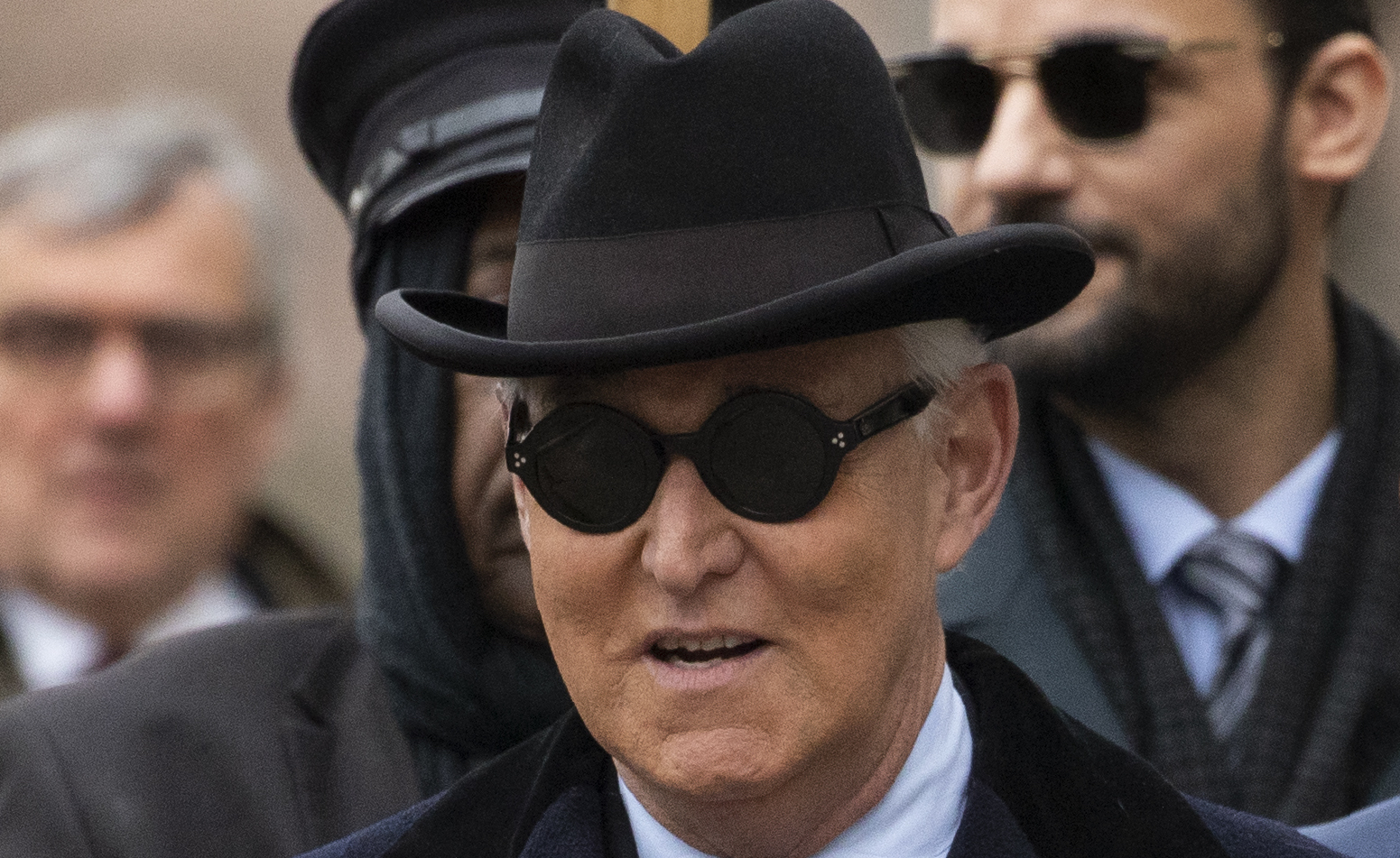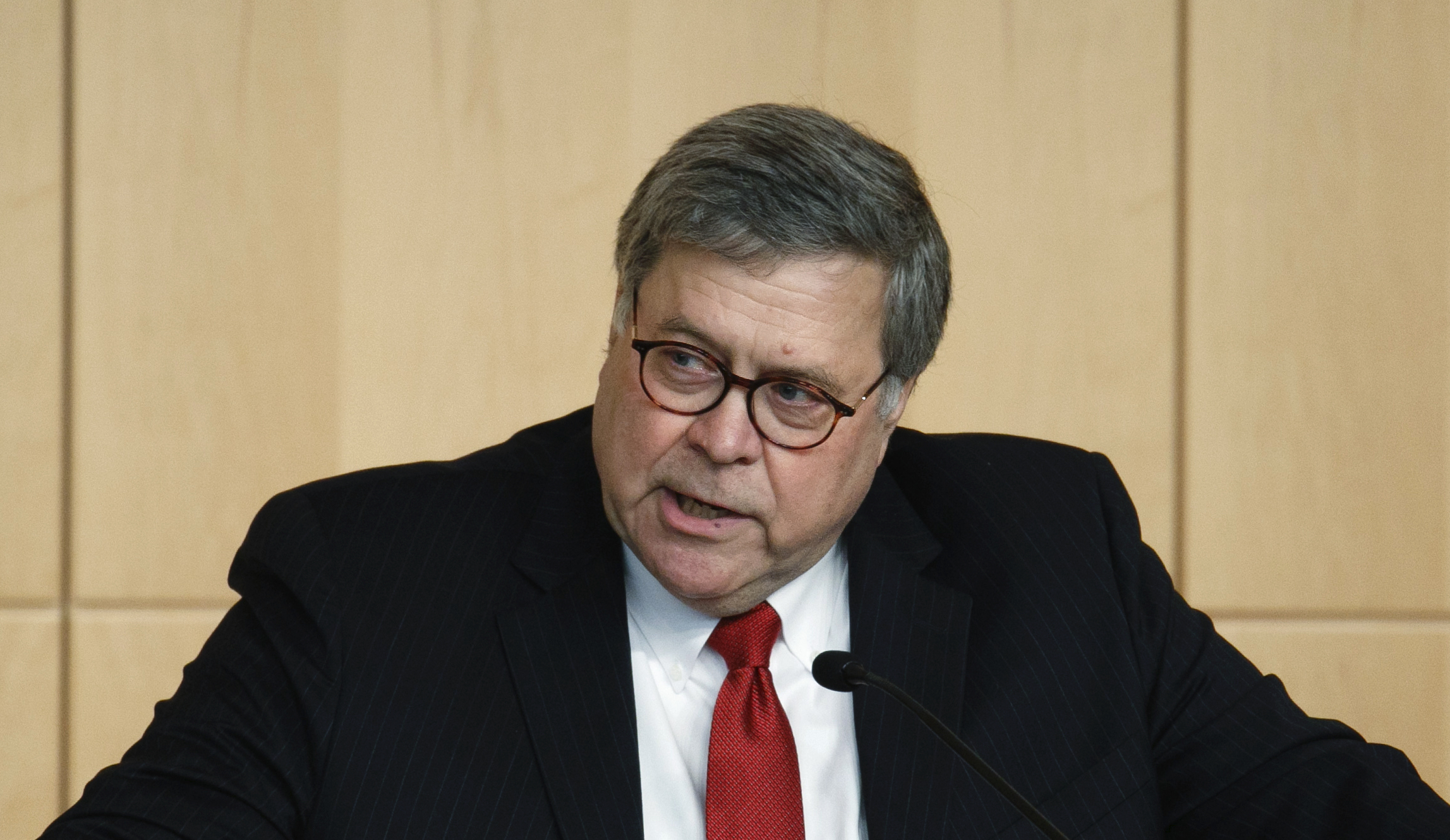Former special counsel Robert Mueller broke his silence Saturday and defended his Russia investigation the day after President Trump commuted the sentence of one of its targets: Roger Stone.
Mueller, a former FBI director, wrote an opinion article in the Washington Post that Stone, a longtime friend and adviser to Trump, “remains a convicted felon, and rightfully so.”
Stone, 67, had been convicted of lying to congressional investigators about his alleged outreach to WikiLeaks, obstructing a congressional investigation, and attempting to intimidate a possible congressional witness.
The White House released a statement Friday evening announcing that Trump had signed a grant of clemency, calling Stone a “victim of the Russia Hoax.” With the commutation, Stone’s 40-month sentence was wiped away days before he was set to go to prison. Without a pardon, Stone maintains his criminal record.
“He has appealed his conviction and is seeking a new trial. He maintains his innocence and has stated that he expects to be fully exonerated by the justice system,” the White House said of Stone.
Congressional Democrats, and even some Republicans, criticized the commutation. “With Trump there are now two systems of justice in America: One for Trump’s criminal friends and one for everyone else,” House Intelligence Committee Chairman Adam Schiff said in a tweet.
Mueller, who has not spoken out publicly since testifying about his report last summer, also defended the integrity of his inquiry, which concluded that Russia interfered in 2016 in a “sweeping and systematic fashion” but “did not establish” any criminal conspiracy between the Russians and the Trump campaign. Mueller also laid out 10 instances of possible obstruction of justice, which Democrats saw as a road map for impeachment. Attorney General William Barr and Deputy Attorney General Rod Rosenstein concluded Trump hadn’t obstructed justice.
Stone was not charged with crimes of Trump-Russia collusion. After his conviction and sentencing, more references to Stone in Mueller’s report have been declassified.
“We made every decision in Stone’s case, as in all our cases, based solely on the facts and the law and in accordance with the rule of law. The women and men who conducted these investigations and prosecutions acted with the highest integrity. Claims to the contrary are false,” Mueller wrote.

The White House press office harshly criticized the credibility of Mueller’s investigation when Stone’s clemency was announced, arguing there was “never any collusion” between the Trump team and Russia.
“Such collusion was never anything other than a fantasy of partisans unable to accept the result of the 2016 election. The collusion delusion spawned endless and farcical investigations, conducted at great taxpayer expense, looking for evidence that did not exist,” the White House said. “As it became clear that these witch hunts would never bear fruit, the Special Counsel’s Office resorted to process-based charges leveled at high-profile people in an attempt to manufacture the false impression of criminality lurking below the surface. These charges were the product of recklessness borne of frustration and malice.”
Mueller was appointed to be special counsel in May 2017 by Rosenstein after Trump fired FBI Director James Comey. Over the course of his two-year investigation, and long after, Trump and his allies have accosted the the inquiry and Mueller’s team as a “witch hunt” and a waste of U.S. taxpayer dollars.
After Barr tasked a U.S. attorney, John Durham, to investigate whether there were any crimes in the Russia inquiry, Democrats have raised the alarm that Trump and Barr are scheming to discredit Mueller’s work.
“Russia’s actions were a threat to America’s democracy,” Mueller wrote in his opinion piece. “The Russia investigation was of paramount importance.”
Stone, a self-proclaimed “dirty trickster,” was just one of several Trump associates who got caught up in Mueller’s investigation. He came under scrutiny because of his possible contacts with WikiLeaks during the 2016 contest.
“One of our cases involved Stone, an official on the campaign until mid-2015 and a supporter of the campaign throughout 2016,” Mueller wrote. “Stone became a central figure in our investigation for two key reasons: He communicated in 2016 with individuals known to us to be Russian intelligence officers, and he claimed advance knowledge of WikiLeaks’ release of emails stolen by those Russian intelligence officers.”
Mueller appeared to be referencing Stone’s 2016 direct messages on Twitter with Guccifer 2.0, an online persona who claimed to be Romanian and not Russian. “Guccifer” had been the name taken up by Romanian hacker Marcel Lehel Lazar. Mueller later assessed that the Guccifer 2.0 account was being run by Russian intelligence.
During the 2016 election cycle, Stone claimed to be in contact with WikiLeaks. He even said he had a back channel to the group.
After Mueller’s article was published, Stone released a statement to ABC News.
“Since my innocuous and innocent exchange with the persona of Guccifer 2.0, the full text of which I released publicly took place AFTER the publication of the Wikileaks disclosures and the content of the exchange prove no evidence of collusion or collaboration and the fact that Mueller’s intensive investigation turned up no evidence that I possessed or knew about the content or source,” he said. “Of any of the material published by WikiLeaks prior to it’s release Mueller‘s statement today is a bitter-grapes smear. If Muller had evidence that I was involved with Russian efforts to obtain and disseminate stolen data why didn’t he bring such an indictment.”
Stone also mentioned U.S. District Court Judge Amy Berman Jackson, the judge who oversaw his case.
“In fact Muller justified [the case] being assigned to Judge Amy Berman Jackson based on the fact that he would introduced evidence obtained in the Russian hacking case at my trial but never produced any such evidence at trial,” he said. “How many times can these discredited dirty cops recycle the same lies?”
Steve Bannon, who was appointed chief executive of Trump’s campaign in August 2016, testified during Stone’s trial in November that “it was generally believed that the access point or the potential access point to WikiLeaks was Roger Stone.”
Prosecutors said Stone tried to contact Julian Assange by using conspiracy theorist Jerome Corsi and radio host Randy Credico as conduits, though he allegedly misled Congress in 2017 by concealing monthslong WikiLeaks-related discussions with Corsi, telling the committee he only tried to reach out to WikiLeaks through Credico.
Recently released search warrants show Stone and Assange conversed with each other online in 2017 after the presidential election.
“Congress also investigated and sought information from Stone. A jury later determined he lied repeatedly to members of Congress. He lied about the identity of his intermediary to WikiLeaks. He lied about the existence of written communications with his intermediary. He lied by denying he had communicated with the Trump campaign about the timing of WikiLeaks’ releases. He in fact updated senior campaign officials repeatedly about WikiLeaks. And he tampered with a witness, imploring him to stonewall Congress,” Mueller wrote, adding, “Stone was prosecuted and convicted because he committed federal crimes.”

Mueller’s 2019 report concluded that thousands of emails were stolen by the Russians from Hillary Clinton’s presidential campaign, the Democratic National Committee, the Democratic Congressional Campaign Committee, and other Democratic staffers and associates. According to the special counsel, Russia’s Main Intelligence Directorate of the General Staff, or GRU, stole these emails and then distributed them through two GRU-operated fronts — the DCLeaks and Guccifer 2.0 websites.
“The GRU units transferred many of the documents they stole from the DNC and the chairman of the Clinton Campaign to WikiLeaks,” Mueller reported. He also determined that DCLeaks and Guccifer 2.0 were the Russian conduits for communication with WikiLeaks.
DOJ Inspector General Michael Horowitz released a report in December that criticized the Justice Department and the FBI for at least 17 “significant errors and omissions” related to the Foreign Intelligence Surveillance Act warrants against Trump campaign associate Carter Page in 2016 and 2017 and for the bureau’s reliance on British ex-spy Christopher Steele’s dossier. Steele worked at the behest of the opposition research firm Fusion GPS, funded by Clinton’s campaign and the Democratic National Committee through the Perkins Coie law firm.
Horowitz also determined that the FBI’s counterintelligence investigation into the Trump campaign’s ties to Russia, code-named Crossfire Hurricane, was properly predicated.
Durham made a rare public statement disagreeing with that conclusion, noting that he is privy to information outside of the watchdog’s DOJ purview. “Based on the evidence collected to date, and while our investigation is ongoing, last month we advised the inspector general that we do not agree with some of the report’s conclusions as to predication and how the FBI case was opened,” Durham said.
Barr agreed, saying Horowitz’s report “makes clear that the FBI launched an intrusive investigation of a U.S. presidential campaign on the thinnest of suspicions that, in my view, were insufficient to justify the steps taken.”

Recently declassified footnotes showed that the FBI was aware that Steele’s dossier may have been compromised by Russian disinformation. Barr has critiqued Mueller for apparently not investigating the matter.
“I think one of the things you have to guard against, both as a prosecutor and, I think, as an investigator, is that, if you get too wedded to a particular outcome and you’re pursuing a particular agenda, you close your eyes to anything that sort of doesn’t fit with your preconception,” Barr said of Mueller’s investigation in May. “And I think that’s probably the phenomenon we’re looking at here.”
In February, after the Justice Department recommended a prison sentence of up to nine years for Stone, Trump tweeted that he “cannot allow this miscarriage of justice!” In a controversial turn of events, the Justice Department reversed itself, and the four line prosecutors withdrew.
The department said its decision to reverse course was made before Barr was aware of Trump’s position, and the president denied placing any pressure on the agency. The agency walked back what it called an “unduly high” sentence recommendation, suggesting three to four years instead but leaving it up to the court. Barr called it “a righteous prosecution” and said he was “happy that he was convicted.”
In early July, the Supreme Court agreed to take up a case to decide whether secret grand jury materials from Mueller’s report should be handed over to the Democratic-led House Judiciary Committee, which is opposed by the Justice Department. The high court will hear arguments this fall.
